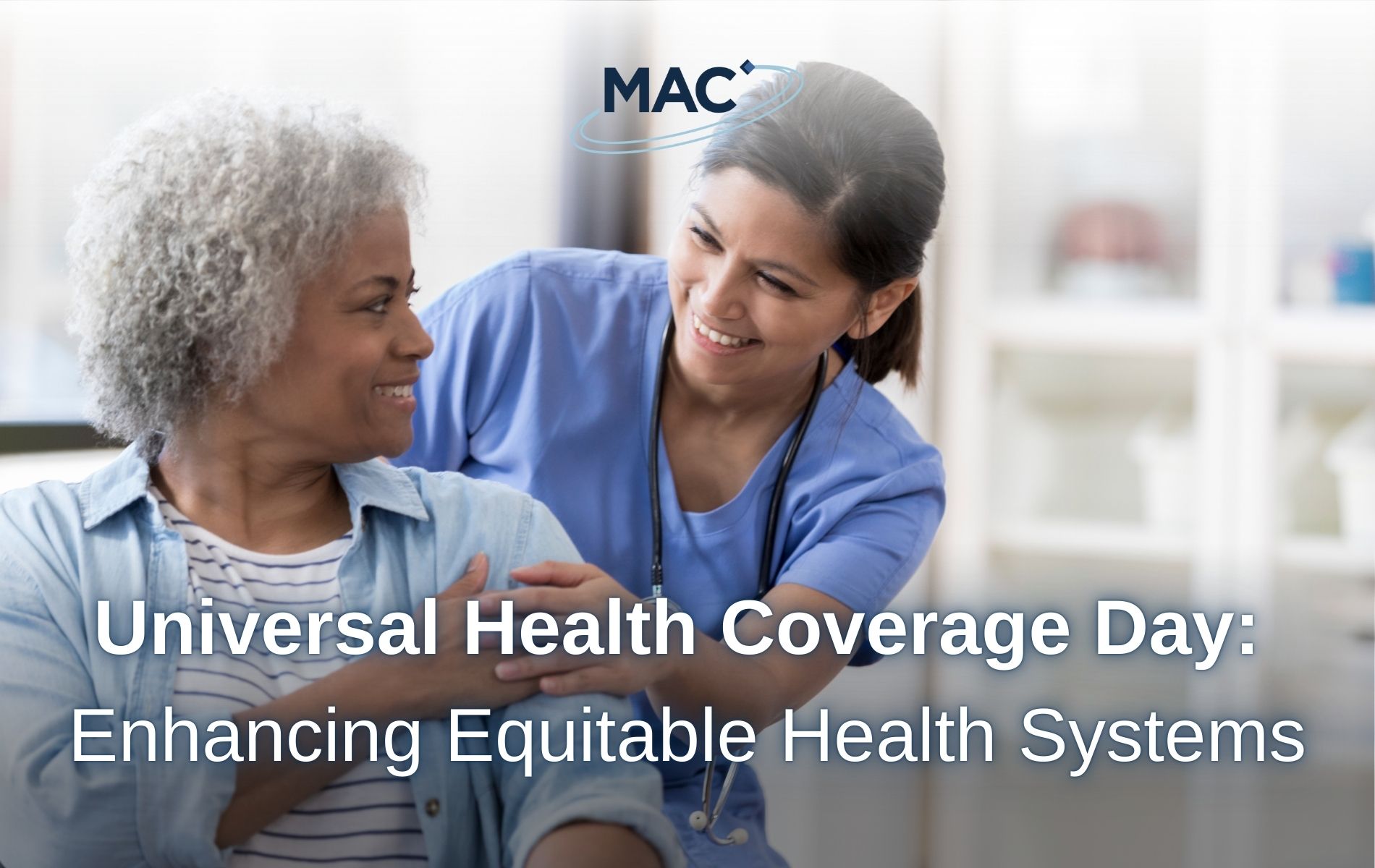Every year on the 12th of December, we mark International Universal Health Coverage Day, a time to reflect on the need for robust, equitable health systems that ensure everyone, everywhere, can access quality healthcare without financial hardship. The World Health Organisation estimates that around 4.5 billion people in the world are not fully covered by essential health services1.
For many, the NHS embodies this principle, offering a beacon of hope and fairness in healthcare. As we celebrate the strides made in providing accessible care, it’s essential to also highlight the critical role of clinical trials in strengthening health systems and delivering affordable, effective treatments for all.
The Foundations of Universal Health Coverage: Equity and Accessibility
Universal Health Coverage (UHC) is not just a goal but a fundamental human right. A strong health system, like the NHS in the UK, plays a pivotal role in making this right a reality. Its principles of equity and universality ensure that healthcare is provided based on need, not ability to pay.
This is vital in addressing health disparities, ensuring that vulnerable populations – be it low-income families or those with chronic, and/or debilitating conditions – receive the care they need. This is crucial for those who come from lower-income backgrounds as there is a 19-year gap in healthy life expectancy between the most and least affluent areas of England2.
However, achieving and maintaining UHC requires continuous innovation and improvement in healthcare delivery, which is where research and clinical trials come into play.
Clinical Trials: Innovating Health Systems
Clinical trials are the backbone of medical advancement. They test new treatments, refine existing ones, and explore innovative approaches to prevention and care. Over 6000 clinical trials have taken place between 2023 and 20243.
From developing life-saving cancer therapies to improving mental health treatments, research ensures that healthcare systems remain responsive to evolving challenges. Importantly, they also focus on making treatments more cost-effective and accessible – a critical component of UHC.
For instance, trials that focus on generic medications help reduce costs while maintaining efficacy, ensuring that patients can afford the treatments they need. Similarly, research exploring telemedicine or community-based healthcare delivery can enhance accessibility for those in remote or underserved areas. It was estimated that over 1300 clinical trials in 2023 ran with a virtual or decentralised element, a 28% increase from the previous year4.
Ensuring Equity in Clinical Trials
While clinical trials have many potential benefits, equity in their design and implementation is crucial. Historically, certain groups—such as women, ethnic minorities, and low-income populations—have been underrepresented in research. In the COVID-19 vaccine clinical trials specifically, only 1% of clinical trial participants were black and only 5.8% were asian5. This leads to gaps in understanding how treatments work across diverse populations, undermining the very equity UHC aims to achieve.
Addressing this disparity involves proactive measures: finding participants from diverse backgrounds, ensuring trials are geographically accessible, and prioritising conditions that disproportionately affect marginalised groups. Only by embedding equity in research can we ensure that the benefits of innovation reach everyone.
Looking Ahead
As we commemorate International Universal Health Coverage Day, MAC Clinical Research want to reaffirm our commitment to building and sustaining equitable health systems. By running clinical trials and ensuring their inclusivity in having a diverse population, we can continue to develop treatments that are not only effective but also affordable and accessible.
If you want to make a difference to the future of healthcare and play a more active role in your own healthcare, you can learn more about clinical trial opportunities near you by visiting our current trials page.
When you take part in a clinical trial with MAC, not only will you receive the utmost care from our specialist teams, but you’ll also receive a comprehensive health check-up, which may include an ECG, blood pressure, and blood tests.
Depending on the trial, you may receive financial reimbursement for taking part. Reasonable travel expenses or transportation for clinic visits are also provided.
Join us at MAC Clinical Research and be part of the future of medicine!
1 World Health Organisation – Universal health coverage (UHC)
2 Office for Health Improvement & Disparities – Health disparities and health inequalities: applying All Our Health
3 NIHR – Annual Statistics
4 GlobalData – Clinical Trials – The Movement Towards Decentralized Clinical Trials
5 BMC Medicine – Ethnic minority representation in UK COVID-19 trials: systematic review and meta-analysis




